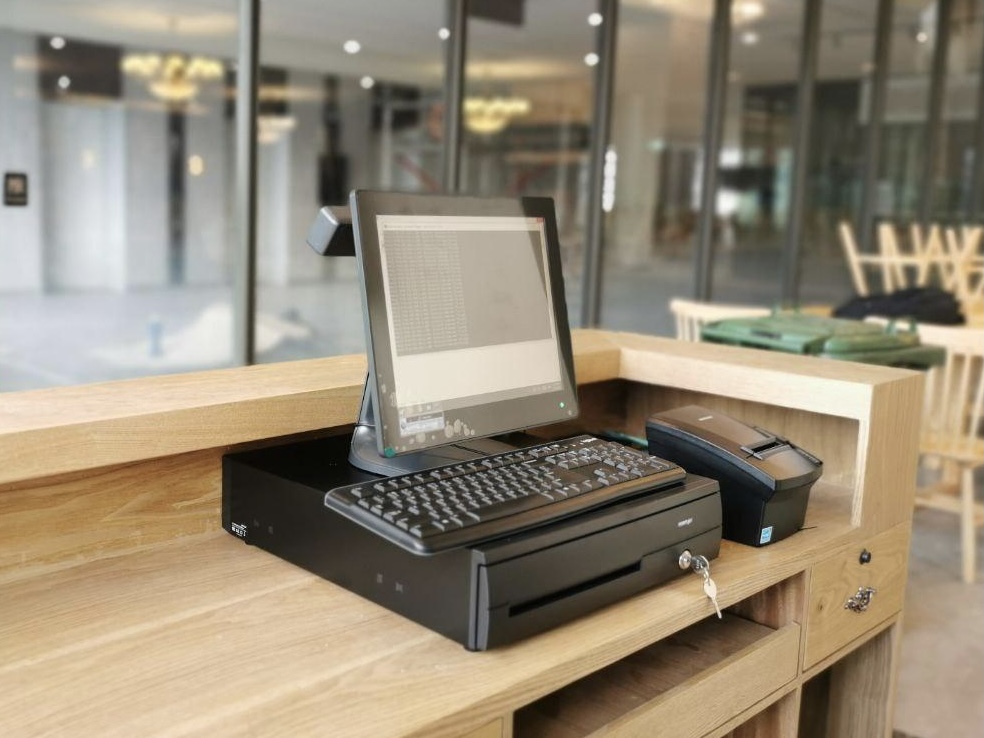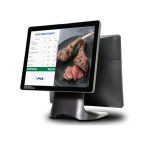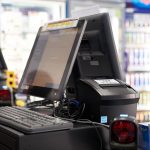No products in the cart.

Introduction To POS Systems
Point of sale simply refers to the interaction or transaction between a cashier and a customer.
Traditionally, companies used Excel or even written inventory books to manage their inventory and track sales.
Thankfully, with advancements in technology we were introduced to Point of Sale (POS) Systems.
POS Systems are modern machines that go beyond just recording customers transactions.
They help you manage your business as well as provide precious insights on your customers.
Today there are many different POS systems, each with their own unique benefits and drawbacks.
Let’s explore the different kinds of POS Systems and the solutions they provide to businesses owners from retail, f&b and other industries.
What Is A POS System?
A POS system consists of both hardware and software.
Hardware typically include :
Monitor or tablet for customer interaction and viewing of items.
Barcode scanner that can pull and register data to the checkout menu.
Credit card or phone readers for cashless transactions.
Receipt printer for both the business and customers to ensure accuracy of transactions.
Cash drawer to store and check cash at the end of the shift.
POS Systems hardware is usually similar across industries.
Software on the other hand, may vary greatly depending on your business.
Features include Sales Tracking, Inventory Management, Employee Management, Customer Analytics and Loyalty Systems. Some advanced systems also include Accounting and/or eCommerce Integration.
Sales tracking allows for Reports and Graphs to be easily generated from sales, which is a feature that traditional cash registers do not have.
This enables the monitoring of trends allowing you to provide a more catered experience for customers, manage your store performance and pinpoint aspects for improvement.
Inventory management also allows you to keep track and audit your stocks, reduce theft, prevent stock outs, and analyse what products are popular among your customers.
Customer Relations Management can ensure that you are informed of repeat customers and maintain a strong loyalty base with them via promotions or membership points and rebates.
Both hardware and the software must work together seamlessly to provide a user friendly experience for customers to interact with and businesses to analyse with.
Choosing a suitable system will heavily impact how your business can operate and how you can utilize the POS System to its fullest potential.
What Are The Different POS Systems And Which One Should I Get?
1. On-Premise POS Systems
An On-Premise POS System is one that has its management and inventory data stored locally and cannot be accessed remotely.
This has its own merits and disadvantages.
The system can function without internet connection. It might allow for faster speeds due to having a local network, allowing for safer and quicker data transfers.
However, the software has to be maintained by the user and getting tech support can be difficult if the software is too outdated and customized.
Recovery of data when the server fails will be near to impossible and new software features are difficult to implement.
2. Cloud-Based POS Systems
A Cloud-Based POS System is one that syncs data to a cloud and operates from a cloud Server.
Updates and new improvements can be rolled out easily, allowing your system to improve without the need to change your hardware.
Data can be accessed remotely through apps, allowing for ease of access as well as monitoring without the need to be onsite
A cloud system provides business owners incredible convenience.
However, there are some downsides that must be considered as well.
Cloud Services generally are paid monthly, which might incur a higher cost in the long run.
Customer data is stored in a Cloud, and the data may be owned and used by the POS Vendors.
Security and safekeeping of the data also depends on the Vendors.
Cloud Systems are based on the internet, and issues with connectivity can affect the reliability and speed of your system.
3. Hybrid POS Systems
A Hybrid POS System aims to take the best of both worlds and offer as much value to the business as possible.
A hybrid system utilises Cloud but does not rely on it.
It has the capabilities of a cloud system such as remote access. However, at the same time it still maintains a local server to host the data.
Users simply have to sync the data to the cloud database online through the internet for the cloud system to maintain accurate real time data.
Updates to the software can also be rolled out easily.
Most importantly, to prepare for the event of a system failure, companies can store their data in a cloud and schedule routine backups.
A Hybrid System tries to use the benefits of both systems to cover for the flaws of both systems, making it an ideal choice for businesses looking for a simple and powerful solution.
Many Singapore businesses have already turned to hybrid POS systems to enhance their business.
EPOS is one of Singapore’s leading vendors that offer hybrid POS systems and has a reputation in many different industries.
We provide excellent local support and help to ensure that issues can be understood and addressed clearly, whether remote or on-site.
In conclusion, a POS System provides massive value to businesses if used to its fullest.
Choosing a suitable and reliable POS System ensures that your precious time is not wasted. This then allows you to have complete visibility over every aspect of your business.
Was this article helpful?
YesNo



